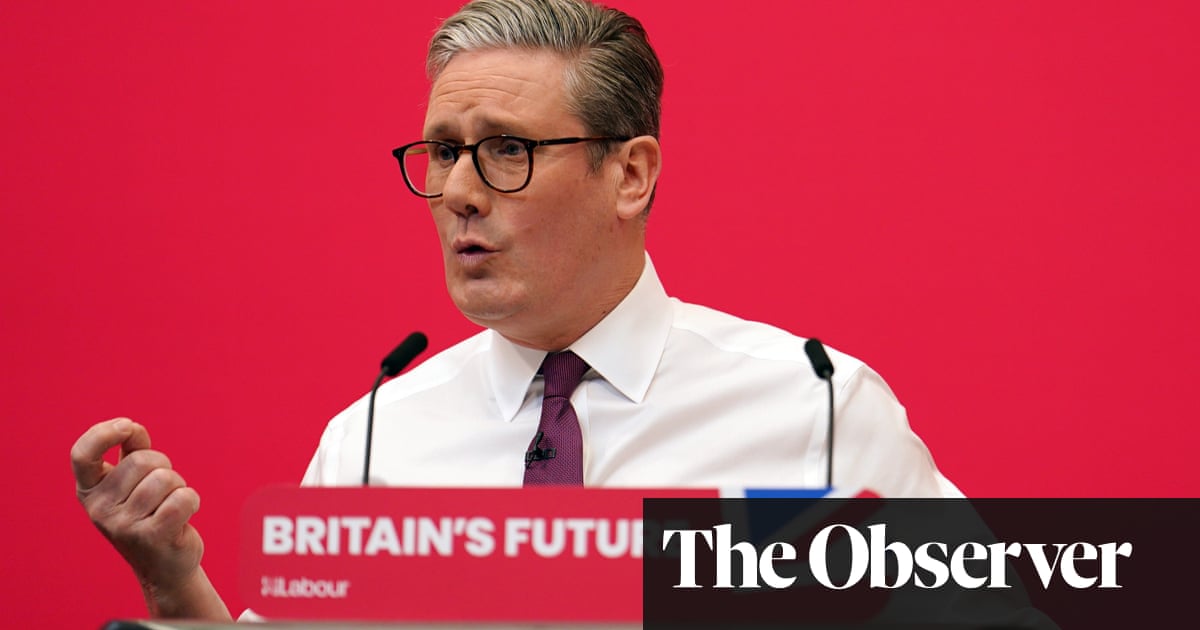Labour membership falls by 23,000 over Gaza and green policies | Labour


Labour has suffered a sharp fall in membership over the past two months following controversies over its policy on Gaza and its U-turn on green investment, according to figures released to its National Executive Committee (NEC). The drop of more than 23,000 members comes despite the party holding a commanding lead in the opinion polls, which suggests it is now seen by the wider electorate as ready and able to form the next government, after 14 years of Tory rule.
Labour sources said the party’s overall financial position remained strong despite membership subscriptions falling off, because donations large and small were healthy, and the expectation was that the unions would still give very substantial backing to the election effort.
In a report to the NEC last week, the party’s general secretary, David Evans, caused surprise when he revealed that membership, which had stood at 390,000 in January, had plummeted to 366,604 at the latest count, with more than 11,700 of these being in arrears. Labour membership reached a peak at the end of 2019 when it hit over 532,000.
One senior Labour figure who was there said: “It is a big fall in just two months. People were surprised, even taken aback.”
Labour insiders believe that the fall has been caused primarily by anger among Muslim and others Labour supporters over Keir Starmer’s position on Gaza and his refusal over several months to call for an immediate ceasefire.
Since the Hamas attacks on Israel on 7 October, Labour’s refusal over many weeks to call for a ceasefire led to the resignation of at least 70 Labour councillors. It also triggered a loss of control in four councils: Oxford, Burnley, Hastings and Norwich.
At the same time, Starmer faced rebellions by many of his own MPs, as well as frontbench resignations. In November, 10 frontbenchers resigned or were sacked from his team after voting for a Scottish National party motion that called for a ceasefire.
Jess Phillips, one of the most high-profile shadow ministers to resign, said at the time: “I have to use my voice to try, and wherever possible, move a dial. And look, I think this dial will move. I think that it won’t be too long before the US and the UK feel that the military action is achieving nothing.”
The party high command has also felt the wrath of green supporters over its decision to drop a commitment to spend £28bn if it wins the general election on its green investment plan, a centrepiece of a programme to drive economic growth.
Early in February – in a move that prompted an angry response from environmental groups, unions and some in the energy sector – Starmer and Rachel Reeves, the shadow chancellor, jointly announced they would slash the green prosperity plan from £28bn a year to under £15bn, only a third of which would be new money.
Luke Akehurst, a member of the NEC, said the party was in a strong financial position despite some cancelling their memberships.
“Party membership is still at historically high levels. Labour only had 150,000 members at the end of its last period in office [in 2010],” he said. “The state of the opinion polls suggest there is no correlation between membership and electoral popularity.”
Grassroots leftwing group Momentum, which has become increasingly critical of Starmer recently, said: “These figures highlight the danger of Labour’s leadership taking its base for granted. From a failure to oppose Israel’s brutal war on Gaza to morale-damaging U-turns and the mistreatment of Diane Abbott, Keir Starmer is alienating swathes of Labour’s core support. Members are the lifeblood of Labour – their departure en masse should set alarm bells ringing.”
Source link




